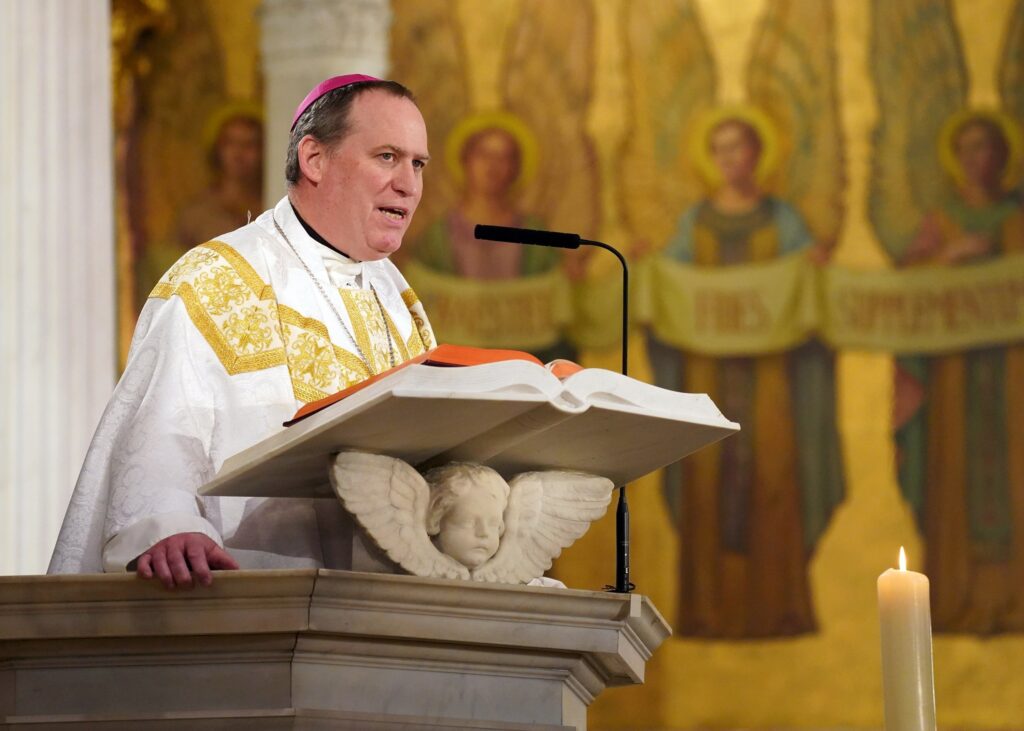
NJ Diocese, Priests Sue Federal Government Over Religious Worker Visa Rule Change
By: Our Sunday Visitor
The Diocese of Paterson, New Jersey, and five of its diocesan priests filed the lawsuit on August 8 in the U.S. District Court in Newark, New Jersey

(OSV News) — A New Jersey diocese and several priests are suing the federal government over a rule change in religious worker visas, in a case that highlights the perfect storm created by the nation’s shifting immigration policies and the Catholic Church in the United States’ increased reliance on foreign-born clergy amid a downward trend of domestic vocations to the priesthood.
The Diocese of Paterson, New Jersey, and five of its diocesan priests filed the lawsuit August 8 in the U.S. District Court in Newark, New Jersey. Four of the priests — Father Regin Nico Dela Cruz Quintos, Father Joemin Kharlo Chong Parinas, Father Armando Diaz Vizcara Jr., and Father Joseph Anthony Aguila Mactal — are citizens of the Philippines. The fifth priest, Father Manuel Alejandro Cuellar Ceballos, is a Colombian national.
Named in the suit as defendants are the State Department, the Department of Homeland Security, and U.S. Citizenship and Immigration Services, along with their respective heads, Secretary Antony Blinken, Secretary Alejandro Mayorkas and Director Ur Mendoza Jaddou.
The suit alleges that the agencies and their leaders have placed the priests in the position of having to “count the days until they have no lawful choice but to abandon their congregations” in the U.S.
At issue is what the diocese’s legal counsel described in an Aug. 16 statement as an unlawful and unconstitutional alteration of how visa availability is calculated for certain noncitizens, which creates “profound immigration delays for noncitizen religious workers.”
Under U.S. immigration law, two types of visas are available for religious workers. The employment-based EB-4, or special immigrant religious worker, visa permits qualified religious workers to immigrate to the U.S on a permanent basis and to potentially become citizens. The R-1 visa, by contrast, allows religious workers to enter the country on a temporary basis and to perform services for up to five years.
However, in March 2023, the State Department announced a sudden change in the allocation of EB-4 visas, thereby significantly lengthening for most applicants the time required to qualify.
“One indirect impact of this change is that many more religious workers on a nonimmigrant religious worker (R-1) visa, who might otherwise have sought adjustment of status under the EB-4 category, will be forced to leave the United States upon reaching the maximum five-year period of stay allowed for an R-1 visa,” the U.S. Conference of Catholic Bishops observed in an explanatory note about the revision on its website.
In March, President Joe Biden extended the EB-4 non-minister special immigrant religious worker program through Sept. 30, although those entering the U.S. solely as ministers, along with their spouses and children, are not affected by the sunset date.
In its legal filing, the diocese noted that the R-1 visas for four of the priests will expire in May 2025, while that of a fifth will lapse in April 2026.
The diocese alleges the rule change by the federal government was “arbitrary, capricious, misguided, unlawful, conducted without notice or comment and … an incorrect interpretation of the Immigration and Nationality Act.”
The complaint also holds that the federal government’s “implementation of immigration law discriminates against religious employers and favors nonreligious employers,” explained the diocese in its August 16 statement.
Violations of the Administrative Procedures Act, the Congressional Review Act, the Religious Freedom Restoration Act, the free exercise clause of the First Amendment, and the due process and equal protection clauses of the Fifth Amendment are all alleged in the lawsuit.
“Our Catholic communities rely on our international clergy to shepherd our flocks and nourish their spiritual journey,” said Paterson Bishop Kevin J. Sweeney in the diocese’s statement. “The State Department’s change to the regulations threatens our mission to serve our communities.”
Bishop Mark J. Seitz of El Paso, Texas, who chairs the USCCB’s Committee on Migration, said during the U.S. bishops’ spring 2024 general assembly in Louisville, Kentucky, that the religious worker visa issue “is only expected to worsen with time, if not addressed” — especially since close to 90% of the nation’s Catholic dioceses rely on foreign-born clergy and religious.
“This is simply not sustainable for our ministries — and it is especially devastating for parishes that will be left without a pastor when he is forced to depart the country at the end of his R-1 visa,” Bishop Seitz told the assembly.
– – –
Gina Christian is a multimedia reporter for OSV News. Follow her on X. Kimberley Heatherington contributed to this report.

